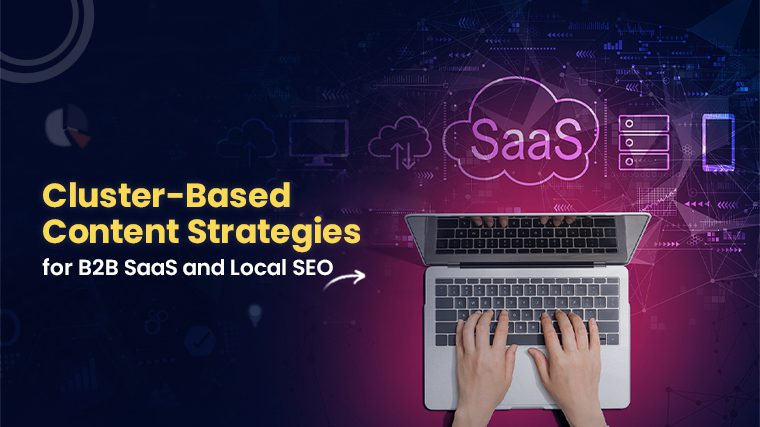
Introduction: SEO’s Evolution Calls for Smarter Strategy
Let’s face it—SEO isn’t what it used to be. Gone are the days when keyword-stuffed pages could cheat their way to the top of Google. In today’s competitive landscape, especially for B2B SaaS firms and local service providers, winning in organic search is about building trust and depth—not just volume.
So what’s the modern SEO playbook?
Topic clusters. It’s the same strategy that forward-thinking websites and every credible SEO agency in the UK use to build lasting search visibility. Better yet, this structure aligns with Google’s Search Quality Evaluator Guidelines, which reward topical depth, semantic relevance, and authoritative content architecture.
Let’s explore how SaaS businesses and local brands alike can turn topic clusters into an organic traffic engine.
What Are Topic Clusters?
Think of your website as a university campus. Your pillar page is the “professor”—the go-to authority on a broad topic. Each cluster page is a specialized lecture diving into specific questions or subtopics.
Here’s how this might look in action:
| Topic | Pillar Page | Cluster Pages |
| CRM Software | The Ultimate Guide to CRM for SaaS | CRM Integrations, CRM for Small Business, CRM Metrics to Track |
This model helps:
- Create a clear flow of information for readers
- Strengthen internal links and crawlability for bots
- Show Google you’re an expert—not just another keyword chaser
Why Topic Clusters Work
According to HubSpot, businesses using the topic cluster model can see 2–3x increases in organic traffic over time. This is because Google’s algorithm increasingly focuses on semantic search—recognizing connections between concepts, not just exact-match keywords.
When your site reflects structured topical depth, you signal that you’re a comprehensive resource, worthy of higher rankings.
The B2B SaaS Advantage: Clarity + Authority = Qualified Leads
SaaS Buyers Aren’t Browsers—They’re Hunters
People searching for B2B SaaS solutions usually know what they want. They’re not scrolling mindlessly; they’re researching, comparing, and evaluating. They need information that is detailed, accurate, and immediately useful.
With clusters built around:
- Feature Breakdowns
- Integration Guides
- Use Case Explainers
- Industry-Specific Solutions
…you can speak directly to different personas and decision-makers at every funnel stage—from awareness to purchase.
It’s not about more content. It’s about more strategic content.
Local SEO: Winning the Micro-Moment with Clusters
If you run a multi-location business—like a law firm, HVAC service, or dental practice—local SEO is crucial. And cluster content helps you dominate not just nationally, but hyper-locally.
Try This Local Cluster Model:
- Pillar Page: Personal Injury Law in Texas
- Clusters: Houston Personal Injury Claims, Dallas Car Accident Lawsuits, Austin Slip-and-Fall Settlements
Each localized page:
- Targets long-tail geo keywords
- References landmarks, ZIP codes, reviews, and uses local schema
- Links back to your core service pages
This not only boosts your rankings in local packs, but helps Google recognize your relevance to each service area.
Content Decay Is Real—Clusters Are the Cure
Here’s something most content teams overlook: blog posts don’t live forever.
Over time, older content loses clicks, rankings, and relevance. This “content decay” affects more than 80% of posts within a year, according to Animalz.
How Clusters Help:
- Internal Linking Rescues Declining Pages: A new pillar can pass link equity to underperforming blogs.
- Centralized Updates, Scalable Impact: Update one pillar, and every cluster around it gains freshness.
- Content Pruning Becomes Smarter: Identify thin or outdated articles and either enhance or merge them strategically.
Clusters aren’t just good SEO—they’re content sustainability in action.
Better UX Means Better SEO
It’s not only about ranking; it’s about keeping visitors engaged.
With a structured content architecture:
- Users find related pages more easily
- Bounce rates decrease as they explore deeper topics
- Navigation becomes seamless and intent-driven
And most importantly, well-structured topic hubs reinforce E-E-A-T: Expertise, Experience, Authoritativeness, and Trustworthiness—all of which play a vital role in Google’s ranking algorithms.
Actionable Tips to Implement a Cluster Strategy
Want to bring clusters to life? Whether you have an in-house team or partner with a trusted SEO agency in the UK, here’s what you’ll need:
| Task | Recommended Tools |
| Keyword Grouping | Ahrefs, Semrush, ClusterAI |
| Topic Mapping | Miro, Trello, Airtable |
| Internal Link Auditing | Screaming Frog, Sitebulb |
| Content Optimization | Surfer SEO, Clearscope |
| Performance Monitoring | Google Search Console, GA4 |
Also:
- Refresh pillar pages every 6 months
- Audit and optimize cluster content every 3–4 months
Consistency wins in long-term search success.
Local vs SaaS: How Cluster Strategy Differs
| Feature | Local Business | B2B SaaS |
| Keywords | Geo-focused (e.g., “Plumber in Leeds”) | Feature-focused (e.g., “Best payroll tools for startups”) |
| Page Types | Location landing pages | Guides, Case Studies, Use Cases |
| Buyer Journey | Immediate service need → contact | Research → Comparison → Sign-up |
| Search Intent | Transactional, urgent | Informational, analytical |
Understanding these nuances is key when building strategies that work—not just rank.
Final Thoughts: Clusters Aren’t Optional Anymore
Topic clusters aren’t just an SEO hack—they’re a necessity.
For local businesses, they anchor your brand in your community. For SaaS companies, they establish subject-matter authority in a competitive landscape. And for everyone? They stop content from dying a slow death and help you stay visible, relevant, and trusted.
Still relying on disconnected blogs and landing pages? You’re leaving SEO equity on the table.
It’s time to evolve. Partner with a performance-driven firm like e intelligence, a trusted SEO company in the UK, known for building scalable, future-proof content strategies that actually move the needle.



